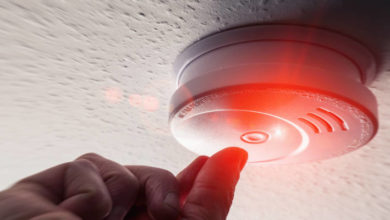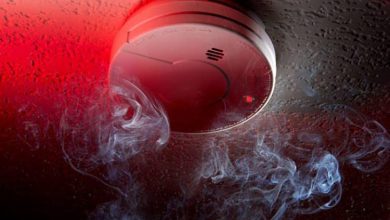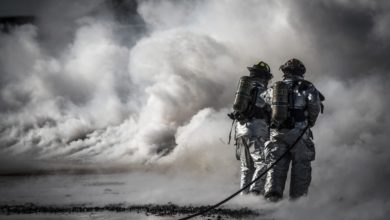How To Be Sure That Your Fire Alarms & Smoke Detectors Are Working?
KEY TAKEAWAYS
With businesses and residences being faced with a heightened risk of fire and arson in recent years, owners and operators have found much needed respite in smart new fire alarms and smoke detectors. However, it’s hard to keep our compulsive minds at bay, and as such, the new concern now is ensuring the proper functioning of the alarms and detectors installed.
It’s perfectly normal to check-up on your check-up systems, and there are a few widely accepted best practices when it comes to testing and ensuring that your smoke detectors and fire alarms are in perfect working condition.
1. Test The Smoke Detectors Every Month
Most smoke detectors come equipped with a ‘Test’ button, precisely to aid with the testing, and helping owners make sure that the alarm sounds and is audible. If your smoke detector does not have this option, you can use a smoke detector tester, or a can of pressurized air to set it off.
This should ideally be done once a month, and if it doesn’t sound the alarm right away, or isn’t audible enough, or fails to work for any reason, the smoke detector has to be serviced or changed right away. In fact, in the case of a fire, a damaged smoke detector can invalidate or reduce the settlement amounts as per many fire insurance policies.
2. Replace Batteries Semi-Annually
Most professional-grade smoke detectors and fire alarms are built for sturdiness, and can withstand substantial wear and tear, however, the one component that remains at the risk of falling short is the battery.
Many smoke detectors even provide indication of a low battery, either with a red light, or a low frequency sound.
Even though batteries can last beyond a year, The National Fire Protection Association recommends changing them every 6 months. This ensures that the device continues to function at its peak, both when it comes to detecting fires and raising audible alarms.
3. Clean Smoke Detectors Regularly
Dust, insects, and debris can interfere and curtail a smoke detector’s ability to detect fires and raise alarms. Such accumulation of such elements further impact the longevity of a smoke detector, leading it to expire far sooner than prescribed.
Regular cleaning of the detectors with a soft, wet cloth, without the use of any chemicals is now a standard practice at most commercial establishments.
4. Check Expiry Dates
People need not be too concerned regarding the expiry dates of smoke detectors, especially since they last for a very long time, with 7 to 10 years being the bare minimum under normal operating conditions.
That being said, however, it is essential to know that smoke detectors can and do expire over time, as they become less sensitive to smoke particles.
Usually, the expiry dates are included behind the device, along with the date when it was manufactured, so when cleaning or replacing batteries, it is good to glance over this text, so that you know how much time you have left.
5. Firm Alarm Connected To Central Station Monitoring
You can take your fire preparedness up by a notch, all the while ensuring that your smoke detectors and fire alarms remain active by connecting the alarm to a central monitoring station.
There are numerous such stations today, but buyers should ensure they only work with approved fire safety monitoring, which are services that remain in compliance with relevant codes, standards, and local regulations.
Such centralized stations often send test signals on a regular basis to your smoke detectors and alarms, which should ensure that your devices remain in proper working conditions. Apart from this, they respond to any emergencies as and when an alarm is raised, with or without your involvement.
Final Words
While the risks of fire to life and property continue to increase, there are a number of new technologies to help combat this threat. Smoke detectors and fire alarms have been around for decades, but the incremental innovations in this space help quell any residual fears or insecurities that owners might still continue to harbor.





